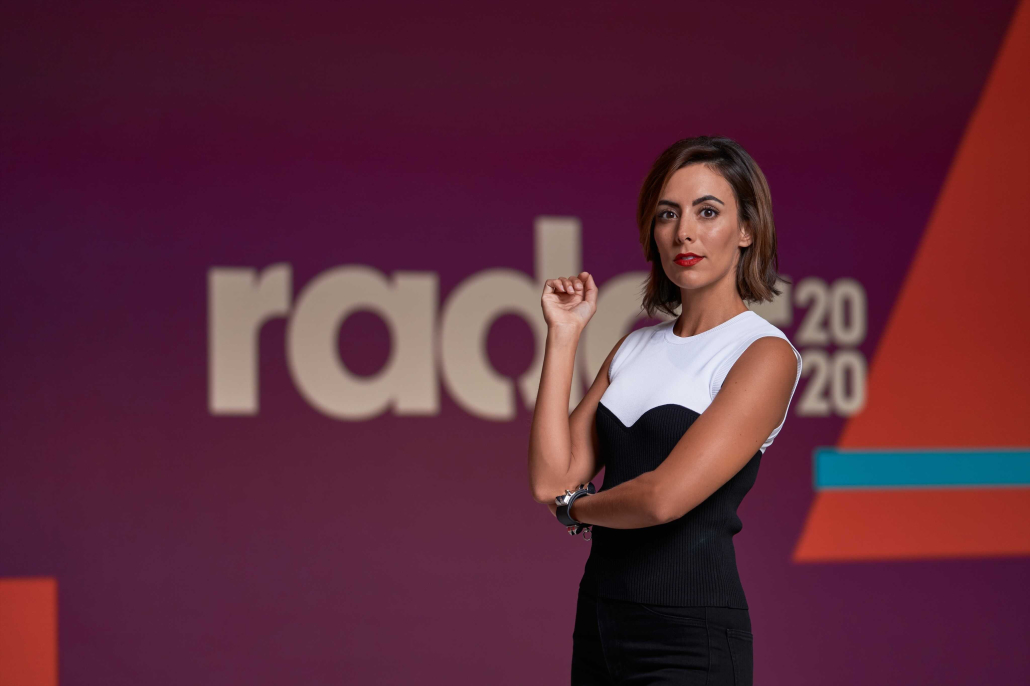Alumna hosts Latinx Telemundo show

Every time Gabriela Fresquez checked the news — particularly during the 2016 election — she saw media outlets project inaccurate stereotypes and representations of the Latinx community. Fresquez, a USC Annenberg School for Communication and Journalism alumna, felt that Latinx communities were not covered comprehensively and only mentioned when it came to topics such as immigration and deportation.
Hoping to inspire change, Fresquez joined “Radar 2021” — Telemundo’s first English language news show, as a producer, lead writer and host.
The show runs on YouTube and aims to provide a more accurate and widespread perspective of Latinx communities in the media.
“During that time, there was just a lot of very negative rhetoric around Latino communities, primarily having to do with immigration and the border policies,” Fresquez said. “Generally, when those communities would be brought up, they would be brought in a very derogatory way — trying to paint the entire Latino community in a way that was very marginalized and stigmatized.”
The Latinx community has faced discrimination for decades, Fresquez said. Seeing the impact of discriminatory treatment in 2016, Fresquez sought to create change in the world of Latinx media coverage. The news industry provided a new lens for Fresquez because she realized she could be the one framing stories. Inspired by this, Fresquez created her own show, “LatinXpert,” before joining “Radar 2021” to cover the Latinx community in a more comprehensive way than what was previously done.
“Radar 2021” runs weekly, tackling an assortment of current issues and breaking them down across a variety of perspectives throughout the Latinx community. Previous topics included art, schooling, business, sex, vaccinations and mental health.
“We’ve done shows having to do with machismo and the Latinx community. We’ve covered mental health … We did an episode on pay equity and closing the gender wage gap for women,” Fresquez said. “And, while all of these issues are typically very universal, we always are looking at it through the lens of the Latinx community.”
Grace Gonzalez became part of the “Radar 2021” team when Telemundo won a Google News Initiative Grant to create English language content for the news department on YouTube. Initially tasked by the network to create the show, Gonzalez now works as the executive producer and one of the creative developers of “Radar 2021.”
“The idea behind ‘Radar,’ when I came up with it, alongside with our senior producer, was to really try to amplify diversity and to try to have more of the voices and faces of Latinx communities across the board represented,” Gonzalez said.
The team holds brainstorming sessions to determine the show’s segments; these individual sections tend to run in a chunk of eight or nine episodes that fall under a main broad topic, which can include any issue relevant to Latinx culture.
After the show runs through the eight or nine planned episodes, the team takes four to six weeks off to select a new wide topic and then holds pitch meetings for specific ideas to use in episodes.
“Radar 2021” looks to not only educate the public on the Latinx community but also create a space for people to see themselves represented in more ways than the narrow focus of current Latinx media coverage, Fresquez said.
“There’s so many subjects and topics that are so important to the community and that we need to talk about, and there’s a lot of topics that are very tough,” Gonzalez said. “If we’re able to create that space for people to feel that the conversation has started and that they have a place to express themselves and kind of hear everybody’s point of view and versions of their story, that’s a great place to be.”
Daniel Alvarenga, a reporter and producer for “Radar 2021,” joined the Radar team in Oct. 2020. Alvarenga finds the show important, he said, particularly because it battles the stereotypical “monolith” representation that the Latinx community often faces.
“It’s a diverse group of people, of different races and of different nationalities. There’s, like, 20 [represented] countries in this group … and I think with ‘Radar’ we’re able to get a little bit more granular and a little bit more in the weeds with identity,” Alvarenga said. “[The show can] talk about not just the things that make Latinos unique, but also the things that make Latinos unique within themselves.”
However, creating a community for younger Latinx people to speak for themselves and talk about topics such as gender, the LGBTQ+ community and other nuances like racism and colorism that were once taboo in the community makes “Radar 2021” most unique for Alvarenga.
Creating “Radar 2021” allows Fresquez to make a difference in media representation, learn about her roots and share it with others.
“Me stepping in and deciding to create my own content was a way to give my community a voice and take up space in a medium that does not generally represent us or only represented in a very specific way,” Fresquez said.

